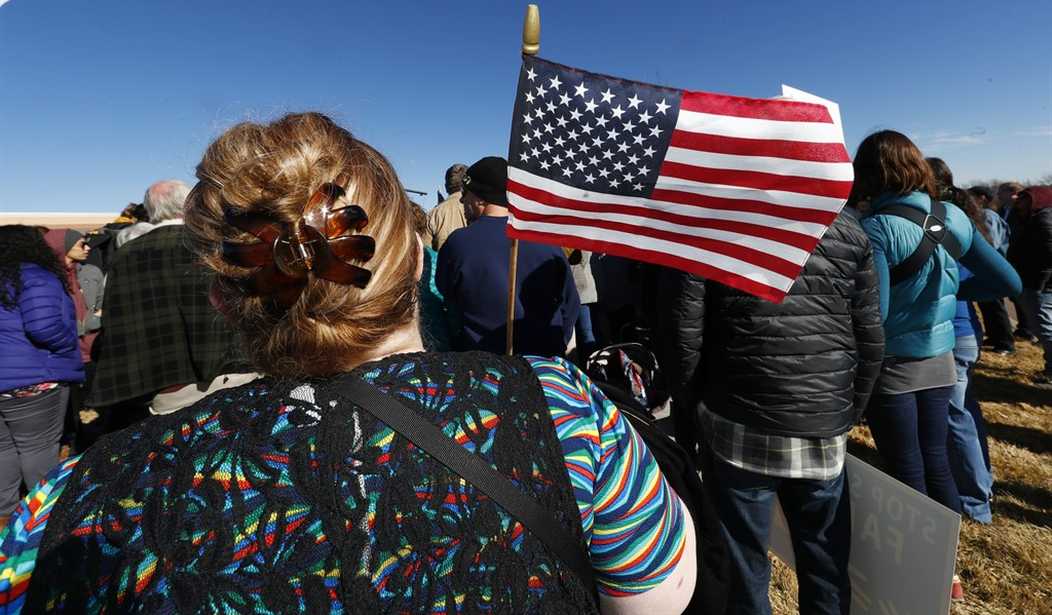If you keep your eyes focused on Washington, D.C., you might think the great divide in America is partisan. I admit: I'm often guilty of doing just that, even though I live 1,500 miles outside the Beltway. But the more disturbing divide that is ripping the nation apart is a cultural one, complicated by economics and education.
I grew up in a working-class family with a father who had a ninth-grade education and was often unemployed, and a mother who worked in restaurants and retail. I escaped that world thanks to education -- in part funded by federal grants, loans and work-study jobs. But many of my extended family members did not. When I read about the opioid epidemic, the chronically unemployed, and the explosion in disability programs and food stamps, I recognize the stories because I've seen them play out personally. I've lost in-laws and relatives to drug overdoses and alcohol abuse. Some of my family members live hand to mouth, dependent on disability payments, Medicaid and food stamps. I look at them and say, "There but for the grace of God." But I also wonder why things are so different from when I was growing up in conditions that could have led to the same outcome.
Some 15 million people in the U.S. receive disability payments. A new analysis of Social Security Administration data by the Washington Post reveals that in some of the 136 counties with the highest rates of disability use across the country, almost all of them rural with a white majority, more than 1 in 6 working-age adults receive federal disability payments. Once on disability, the Post points out, recipients rarely get off the program. By and large, these are not individuals who fell off a roof and broke their back or lost limbs in an industrial accident. They suffer from back pain or diabetes or emphysema or liver cirrhosis or some other lifestyle-induced ailment that makes full-time work difficult. But, perhaps more importantly, they live in communities where job opportunities are few, especially for those who don't have a college education.
Recommended
But disability programs are just a fraction of the government's assistance programs. A 2015 study by the U.S. Census Bureau showed that 52.2 million people, or roughly 1 in 5 Americans, received help in 2012 (the last year for which comprehensive statistics are available) from one of six means-tested programs. And, of course, this doesn't count Social Security or Medicare, which pays out to individuals on average far more over their lifetimes than they contributed in taxes. We have become a nation that is increasingly dependent on government assistance, and it is having a profound effect on our lives and our politics.
When I read these statistics, I can't help but wonder what would have happened if I were growing up now in the same circumstances I experienced as a child. I would have had better health care -- I never went to a dentist until I was 21 and didn't receive any immunizations until fourth grade, and only then because the new school I attended that year (my sixth one) wouldn't allow me to enroll without them. But if my father were living today, he might well have been prescribed opioids for his chronic pain from injuries sustained in a wartime plane crash. He was an intermittent alcoholic, so I hate to think how that would have turned out. And so might my mother, who spent six months in a body cast after a devastating car accident and yet had to wear high heels to work afterward, despite the pain from a large screw that held her ankle together.
Would they have quit their jobs and gone on disability? And would they have even stayed together? I knew only a couple of kids from what we called "broken homes" in those days, but my parents' relationship was tumultuous at best and might have dissolved if the social pressure to stay together were as weak as it is now. We might also have been tempted to live in subsidized housing. Instead, we lived in cheap apartments, and the rent was partially covered by my father's handyman work. We may have had to share bathrooms with other families and move frequently, but we always lived among self-reliant working people. No one stayed home drinking and smoking and watching TV all day.
The world I came from and the one I live in now are separated by a deep chasm. Unfortunately, those stuck on the wrong side of that divide can't see how they will ever leap over, and many on the successful side don't even know the other world exists. Until we figure out how to bridge that gap, we will remain a divided country.

























Join the conversation as a VIP Member